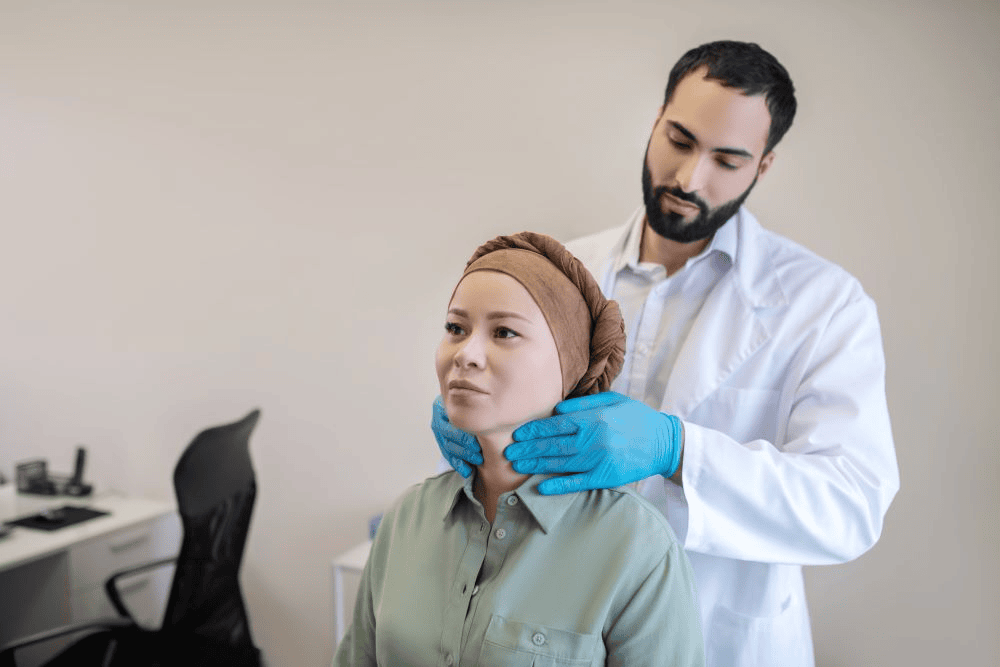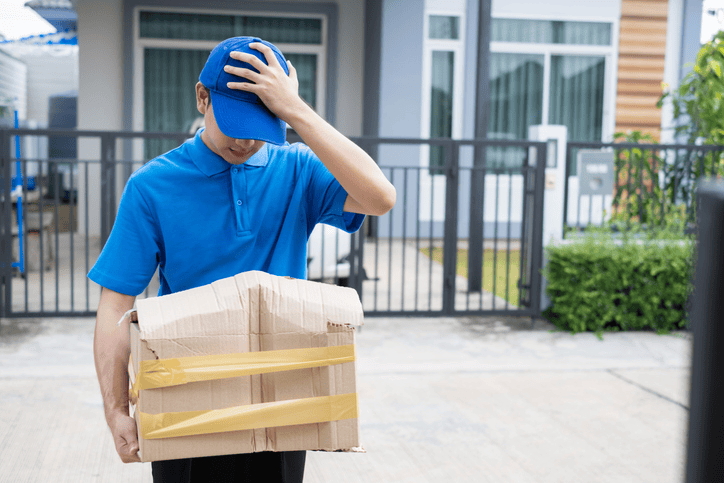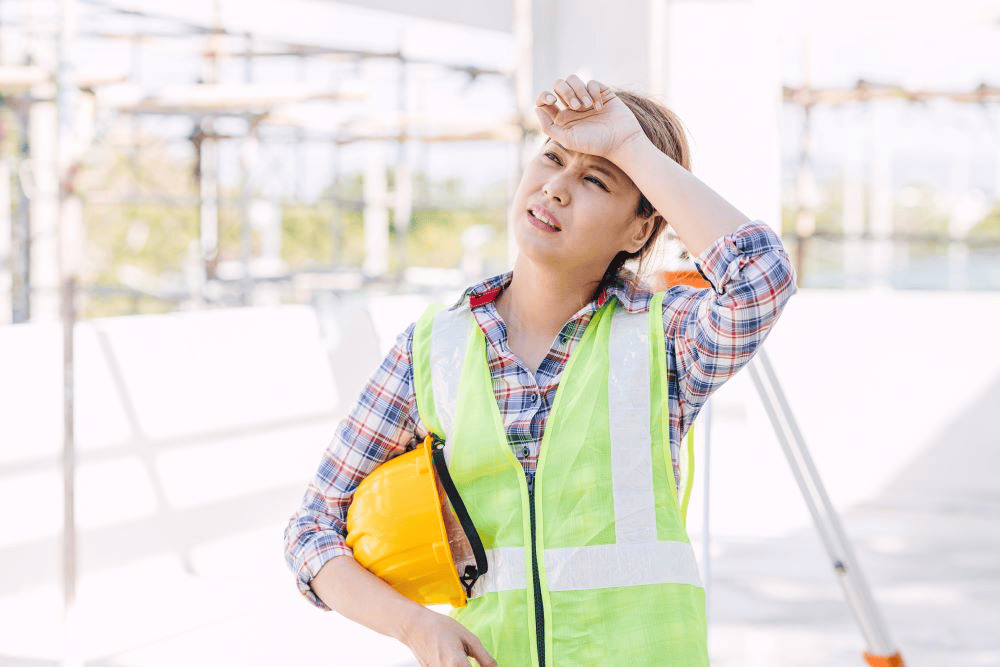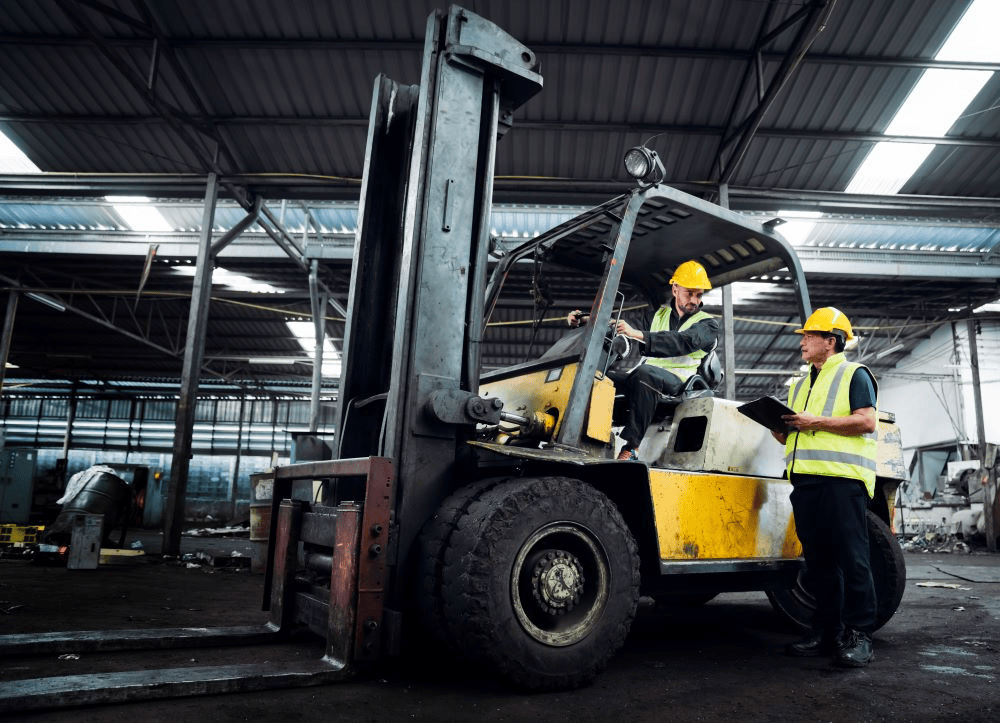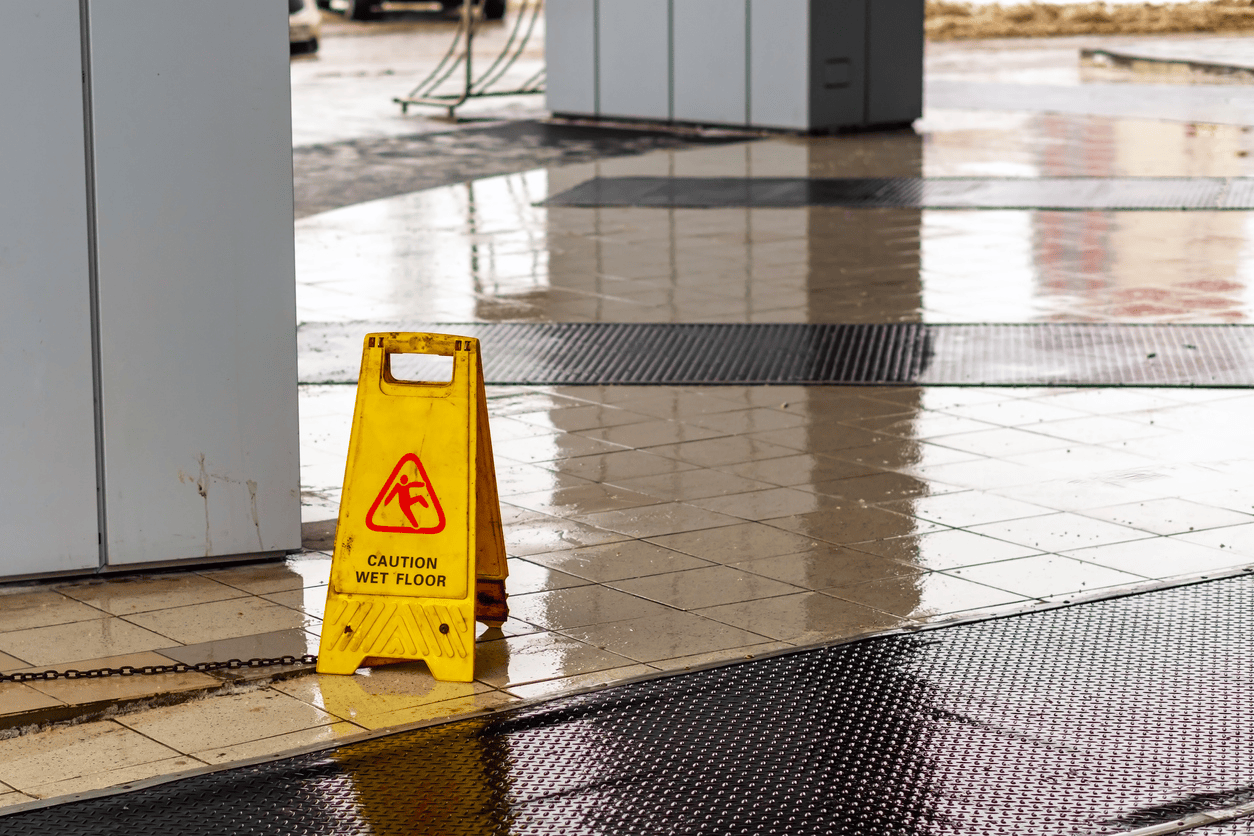
Slip and fall accidents are one of the most common workplace injuries, leading to significant physical, emotional, and financial stress. If you have experienced a slip and fall at work, you may wonder, “Can I sue my employer for a slip and fall?”
This article aims to answer that question and provide a comprehensive guide on what steps to take, your rights, and you may recover compensation you deserve.

Common Causes of Slips, Trips, and Falls in the Workplace
Slips, trips, and falls can happen in any workplace environment. Some common causes include:
- Wet or slippery floors: Spills, leaks, and recently cleaned surfaces can be hazardous.
- Uneven surfaces: Poorly maintained flooring, loose mats, or carpets.
- Obstructions: Cables, cords, and clutter in walkways.
- Inadequate lighting: Poor visibility in work areas.
- Weather conditions: Ice, snow, or rain tracked into the workplace.
- Improper footwear: Shoes without adequate traction or support.
Understanding the cause of your slip and fall accident is crucial in determining liability and your legal options.
Common Injuries from Slip and Fall Accidents
Slip and fall accidents can result in a range of injuries, from minor to severe, including:
- Bruises and abrasions: Minor injuries that can cause discomfort.
- Sprains and strains: Damage to ligaments and muscles, often requiring rest and rehabilitation.
- Fractures: Broken bones, particularly in the wrists, arms, and hips.
- Head injuries: Concussions or traumatic brain injuries (TBIs) from hitting your head.
- Back and spinal injuries: Potentially leading to long-term disability.
These injuries can lead to significant medical expenses, lost wages, and long-term rehabilitation needs.

Steps to Take After a Slip and Fall at Work
If you experience a slip and fall at work, it’s a premises liability. Therefore, it’s important to take the following steps to protect your health and your rights:
Seek Medical Attention:
Your health is the priority. Get treated immediately and keep records of all medical visits and treatments.
Report the Incident:
Notify your employer about the accident as soon as possible. Document the report in writing.
Gather Evidence:
Take photos of the accident scene, note any hazards, and collect contact information from any witnesses.
Document Everything:
Keep detailed notes of your injuries, medical treatments, and how the injury impacts your daily life and work.
File a Workers Compensation Claim:
Inform your employer and file a claim to receive benefits for your medical expenses and lost wages.

Who is Responsible for a Slip and Fall Accident?
Determining responsibility for a slip and fall accident can be complex. Generally, employers are required to maintain a safe working environment. If an employer’s negligence leads to a hazardous condition, they could be held liable.
However, under California law, most workplace injuries, including slip and fall accidents, are covered by workers compensation insurance.
This no-fault system means you do not need to prove your employer’s negligence to receive benefits. Yet, there are specific circumstances where you can sue your employer.
Can I Sue My Employer for a Slip and Fall?
In most cases, workers compensation insurance is the primary remedy for workplace injuries, including slip and fall accidents. However, there are certain circumstances where you can sue your employer directly:

When Can I Sue an Employer for a Slip and Fall?
- Employer’s Intentional Harm:
If your employer intentionally caused your injury, you can file a personal injury lawsuit.
- Gross Negligence:
In case your employer’s gross negligence led to your slip and fall, you might have grounds to sue.
- Lack of Workers Compensation Insurance:
If your employer does not carry workers compensation insurance, you can sue for damages in civil court.
How Can I Sue My Employer for a Slip and Fall?
If you believe your case falls under any of the above exceptions, follow these steps:
- Consult a Personal Injury Lawyer:
An experienced lawyer can help determine if you have a valid case and guide you through the legal process.
- File a Complaint:
Your lawyer will help you file a complaint in civil court, detailing the nature of your injury and the compensation you seek.
- Negotiate or Go to Trial:
Many cases are settled out of court. However, if a fair settlement is not reached, your case may go to trial.
How Much Compensation Can You Recover for a Work-Related Slip and Fall?
The compensation you can recover depends on several factors, including the severity of your injuries and the circumstances of the accident. Potential compensation includes:
- Medical Expenses:
Coverage for all medical treatments related to your workplace injury.
- Lost Wages:
Compensation for the income lost while recovering.
- Pain and Suffering Damages:
Non-economic damages for physical pain and emotional distress.
- Disability Benefits:
If your injury results in long-term or permanent disability, you may be entitled to additional benefits.
An experienced personal injury lawyer can help injured workers to pursue maximum compensation for their injuries.

What Is the Best Way to Prevent Slip and Falls at Work?
Preventing slip and fall accidents is crucial for maintaining a safe workplace. Here are some tips:
- Regular Inspections: Conduct regular safety inspections to identify and address hazards.
- Proper Maintenance: Ensure that floors, walkways, and lighting are well-maintained.
- Employee Training: Train employees on safety protocols and proper footwear.
- Prompt Clean-Up: Address spills and obstructions immediately.
- Clear Signage: Use warning signs to alert employees of potential hazards.
Employers must prioritize occupational safety to reduce the risk of workplace injuries.
Workers Compensation Claim Process
If you’re injured on the job, here’s an overview of the workers compensation claims process:
- Report the Injury: Notify your employer about the injury immediately.
- File a Claim: Complete and submit a worker’s compensation claim form to your employer.
- Employer Submits the Claim: Your employer forwards the personal injury claim to their insurance company.
- Medical Evaluation: Attend any required medical evaluations.
- Receive Benefits: If approved, you will start receiving workers compensation benefits for your medical bills and lost wages.
How an Attorney Can Help You in a Slip and Fall Case
If you’ve experienced a slip and fall accident at work, navigating the legal and compensation processes can be overwhelming. Hiring an attorney can be a crucial step in ensuring you receive the compensation you deserve. Here’s how an attorney can help you in a slip and fall case:
Expertise in Workers Compensation Law:
An experienced attorney understands the complexities of workers compensation law and ensures your claim is correctly filed and managed, reducing errors and delays.
Evaluating Your Case:
An attorney can assess your slip and fall case to determine whether you should pursue a workers compensation claim or a slip and fall lawsuit against your employer.
Gathering Evidence:
Lawyers collect and organize critical evidence such as medical records, accident reports, and witness statements to build a strong case for your claim.
Negotiating with Insurance Companies:
Attorneys negotiate with insurance companies to secure fair compensation for your medical expenses, lost wages, and other damages.
Representing You in Court:
If your case goes to trial, an attorney will represent you, presenting evidence and arguing on your behalf to improve your chances of a favorable outcome.
Maximizing Your Compensation:
A lawyer ensures all potential damages are considered, including long-term costs like rehabilitation, future medical care, and pain and suffering.
Handling Appeals:
If your workers compensation claim is denied, an attorney can guide you through the appeals process, gathering additional evidence and representing you in hearings.
Specialized Knowledge:
Attorneys specializing in personal injury and workers compensation have in-depth knowledge of state laws and deadlines, ensuring your case complies with all legal requirements.
Addressing Employer Retaliation:
If you face retaliation for filing a claim, an attorney can protect your rights and take legal action against any unlawful employer practices.
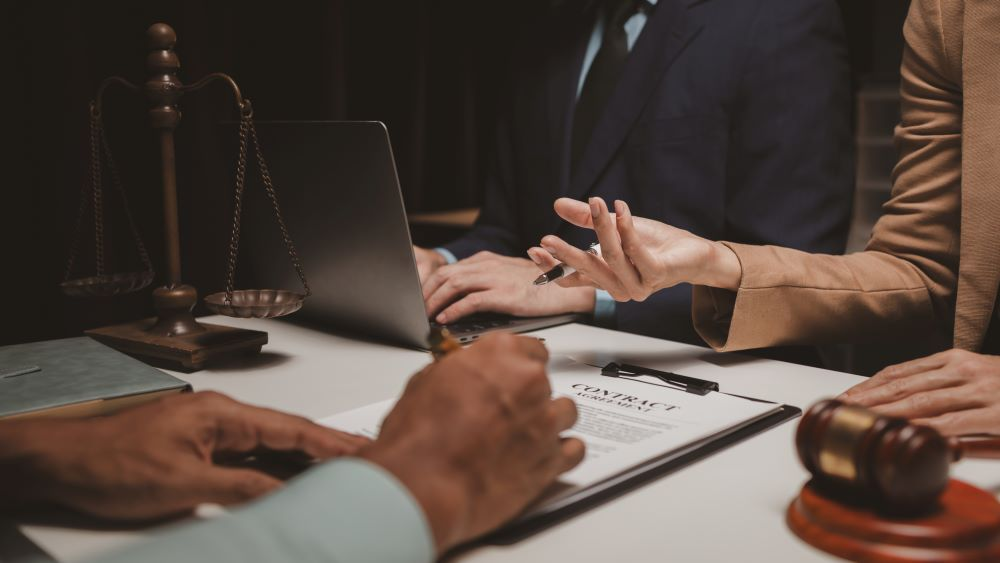
Secure Your Rights and Compensation You Deserve with BLG
A slip and fall accident at work can have serious consequences, both physically and financially. While workers compensation insurance covers most workplace injuries, certain circumstances allow you to sue your employer for a slip and fall.
Understanding your rights and the steps to take after an accident can ensure you receive the compensation you deserve.
Have you suffered a slip and fall at work and are unsure of your legal rights?
At BLG, we specialize in workers compensation claims and personal injury lawsuits. Our dedicated team of experienced lawyers is here to ensure you receive the compensation you deserve.
Contact us today for a free consultation.
